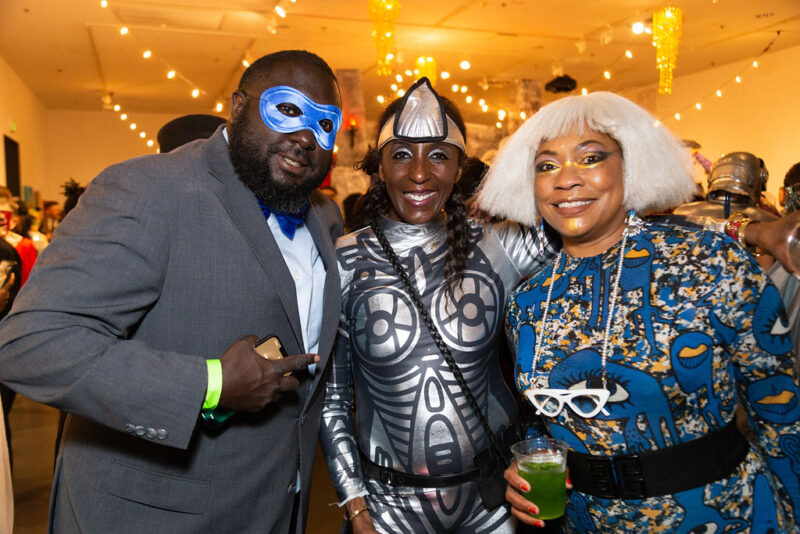
“Success is a function of the choices we make as a society.”
At McDaniel College, Malcolm Gladwell discussed several ideas from Outliers, his book which analyzes the myths and realities surrounding the mysterious state which we call success. All McDaniel freshmen were required to read this text as part of their introduction to college. The author explained how success could be better understood and democratized through the window of capitalization, the ratio between those with potential who achieve success and those who do not.
Gladwell used the book The Blind Side by Michael Lewis as an example of capitalization, a book about Ravens football player Michael Oher. As a young child, Oher was plucked out of a low income neighborhood in East Memphis and raised by upper middle class parents. He is now an NFL athlete. In Oher’s childhood neighborhood, football was highly valued. However, none of his childhood friends are in the NFL. When Gladwell researched why this happened, he learned that one in six atheletes in East Memphis accept athletic scholarships. Five out of six turn down FREE COLLEGE. Thus, the capitalization rate is one in six for professional football in East Memphis. This is especially hard to believe because in this environment, football is a passion and favorite activity. The obvious question here is why?
“What prevents people from achieving their potential?” Gladwell asked us. There are three main reasons why the capitalization rate for success in ALL fields is low. The first reason is poverty, which wastes human ability. It’s not intelligence, not talent, but poverty. Yet, our culture tends to believe that poverty is a function of inferiority. Read about the ‘genius’ study in Outliers if you don’t believe me.
 The second reason is stupidity. “Why are capitalization rates so low?” he asked. “Because we are stupid.” I would also suggest laziness here as well. The educational system chooses gifted students the same way that athletic teams choose their all-stars, and this is why the majority of the ‘talented’ have birthdays in the first three months of the year. When January 1 is the cutoff for a grade, it is obvious that students with six or eight months of maturity, especially in younger grades, have an advantage. Yet our systems continue to operate the same way, effectively shutting out the other half of the ‘gifted.’
The second reason is stupidity. “Why are capitalization rates so low?” he asked. “Because we are stupid.” I would also suggest laziness here as well. The educational system chooses gifted students the same way that athletic teams choose their all-stars, and this is why the majority of the ‘talented’ have birthdays in the first three months of the year. When January 1 is the cutoff for a grade, it is obvious that students with six or eight months of maturity, especially in younger grades, have an advantage. Yet our systems continue to operate the same way, effectively shutting out the other half of the ‘gifted.’
The third reason for low capitalization rates is attitudes. Gladwell’s example, also from Outliers, was the disparity in capitalization rates between math scores in the United States versus Asian countries. Many people in western culture choose to believe that there is a genetic difference to explain it. Rather, it has been proven that children from Asian cultures have the ability to sit still and concentrate longer, thus perform better. Gladwell traced this emphasis on hard work back several hundred years to peasants in the 17th century. In Asian countries, peasants worked an average of 3000 hours per year while European peasants worked an average of 1000, in part because of winter, in which they basically drank alcohol and slept.
What I like about Gladwell’s theories is that they show us that success has very little to do with talent and has everything to do with hard work. In subject after subject, from The Beatles, to Jewish Lawyers, to Korean airline pilots, to Italian immigrants in rural Pennsylvania, Gladwell illustrates, in Outliers, that success is a function of society, but is not as steeped in ability as one normally assumes.
After his talk, Gladwell did a Q&A session with the students. At this time, it was obvious that many of the students had taken his messages to heart, although maybe not exactly as their professors at McDaniel had intended. Several young men wanted to dispute hockey stats with him, but most students had very specific questions for him, including, “How do YOU define success?”
This could have been a slippery slope, but Gladwell used this question to solidify his message. Although he discussed various forms of success in Outliers, from wealth to academic honors to fame and status, Gladwell paused and said that society’s definition of success didn’t really apply to individuals.
“My brother is an elementary school principal,” he said. “He and the teachers at his school aren’t getting rich, but they are doing meaningful work and also have enough money and time to spend with their families. This, to me, is success.” Gladwell explained that meaningful work was deeply satisfying for three reasons: it is complex, it is autonomous, and there is a direct relationship between effort and reward. Failure in his definition was not necessarily poverty, but the knowledge that your talent was being wasted.
I appreciate Gladwell’s writing, both in his books and as a regular contributor to The New Yorker, because he takes complex social and academic issues and inserts them into conversational language and memorable anecdote. Gladwell’s ideas are so accessible, I find myself telling these yarns to others, forgetting that they are not my own. On the whole, he democratizes success and makes it available to anyone who desires it, as long as they are willing to put in “10,000 hours” of hard work, another chapter in the book. It’s not an easy prescription, but it is a simple and effective one.
– Cara Ober



